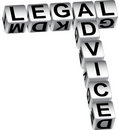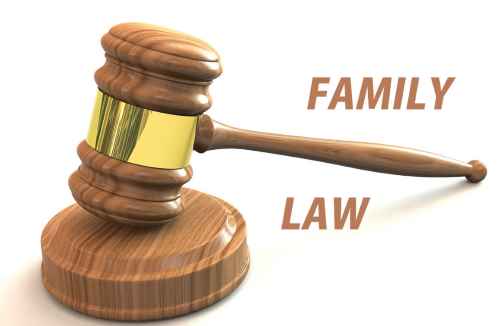Legal Questions? / Legal Answers!

Witnesses, Yours, Mine & Ours
"Knowing how the witness process works may
help you to help your Attorney. After all,
you have at least one witness for your case.
You. I cannot stress enough times, how important
writing down everything about your incident
is. By you and any witnesses you have."
If your charged with a crime you should know
that the District Attorney has the statements
of all the people involved. They could even
include your family and friends. If they
were there at the time of the incident and
were "asked" to make out a statement,
the District Attorney has them. If you plead
Not Guilty, those people who filled out the
statements, will also be served subpoenas'
to come to court and testify against you.
The court will pay them to do so with tax
payers money, and the court may fine them
if they fail to appear. The Police Officers
involved will also be there to testify against
you. Remember that Right To Remain Silent
suggestion I discussed? If you used it, you
probably won't be much "help" as
a witness against yourself."
Knowing how the witness process works, may
help you to help your attorney win your case.
You also have the same right to subpoena
witnesses. The difference is, you'll have
to pay your witnesses for their time, if they request it. You will also have to pay to have them served
the subpoenas to testify for you. ( maybe
not much? ) see "Serving a Summons"
When you go to court, you can bring in witnesses
to testify for you but they must have personal knowledge of your charge(s). Personal knowledge does
not mean "I heard that it happened."
Your witness must have seen and heard what
happened. If they saw anything to do with
your case, and they are a "friendly"
witness, I hope you had them write everything
they saw or heard down before getting to
this point. see Ideas, Advice, PTL & VLP
You may get an unfriendly witness. A friend
or family member who doesn't want to get
"involved." Someone who saw your
car accident but wants to drive off. ( get
a plate #)
If you need a witness to testify, but they
refuse to do so due to work, time involved,
or for whatever reason. If you need them,
you can have them served and Ordered to appear. see Serving A Summons If they fail to respond to your summons and
refuse to show up, your witness may be arrested
for failure to respond to a subpoena.
"If you have a very important witness
that you really need in court to prove your
case, and that witnesses was subpoenaed but
failed to show, you should ask the Judge
for a continuance on your case. This would
allow you to do your "fight" on
another date, giving you a chance to get
that witness into court. The Judge might
ask you the relevance of your witness to
your case. Explain the nature of their testimony
and what it may mean to your case. The judge
may grant your request and even help you
to "Order" your witness to appear.
"
You May Also Subpoena An Expert Witness.
An Expert Witness does not have to have personal
knowledge of your situation and is the only
exception to that rule. For example, if the
charge has anything to do with your vehicle,
( failure to stop maybe due to faulty breaks,)
a mechanic could testify that your vehicle
was at a point where more time was needed
to stop, due to worn break pads. Probably
not the best example I could give. Guess
I could have gone for the C.S.I. Specialist
who didn't "see" the murder, but
knows how it happened. but I am sure you
get the idea. The expert witness doesn't
have to see what happened. They can testify
to why it may have happened, or how, in their
expert opinion, it could have happened. The
Expert Witness is also entitled to compensation
for their time, which is paid by you.
If you have more than one witness, the District
Attorney probably will request to the Judge
that there be an "Exclusion Of The Witnesses."
This means that the court may order witnesses
excluded from the courtroom so that they
cannot hear the testimony of other witnesses.
That of course, is so the District Attorney
can ask the same questions and hopefully
get different answers. Your witnesses need
to be on the same page because it only takes
one discrepancy to discredit the witness
testimony.
"Personally, whenever I represented
myself, I offered only a couple of witnesses
to testify, even if there were more. I felt
that too many witnesses could be "led"
to different versions of the facts by the
very knowledgeable District Attorney."
After your witness has testified for you,
the District Attorney gets their chance to
ask your witness questions. Cross-examination
should be limited to the incident in question
and matters affecting the credibility of
the witness.If the District Attorney gets
your witness to say something that you feel
needs more clarification to be understood,
as far as your charge is concerned, you will
have a chance to re-question your witness.
Once your witness has finished testifying,
you can excuse the witness, which means they
can leave and are no longer needed or you
can ask the Judge to ask the witness to make
themselves available in case they need to
be brought back to the stand.
Before testifying, every witness is required
to declare that they will testify truthfully,
by oath. I am sure you all have heard the
made for TV version of "Do you swear
to tell the truth, the whole truth and nothing
but the truth so help you God?" statement.
If it is found that any witness has lied
during testimony, they could be charged with
purger by the District Attorney . You do
Not want to be charged with that. see: "The
Power Of The Judge"
My Final Thought...

"If I could give you one bit of advice in
reference to your Attorney it would have
to be: Always Tell Them The Truth! There is nothing worse than being blind
sided in a courtroom. When you have spent
time prepared to defend your case, and you
find during their witness testimony, your
client "forgot to mention that. Before
I helped anyone, I made it clear that no
matter how embarrassing it may be, no matter
how much they didn't want anyone to know,
I needed the truth in order to help fight
their case. Your Attorney is under Client
/ Attorney Confidentially rules. He / She
cannot hold the truth against you, and must
put forth every effort to defend you. No
matter what the charge is. They have to remain
unbiased towards your case.... no matter
what they know about it. Remember, You NEED
to inform your Attorney of any discrepancies
in any statement you might have made to the
Police."

